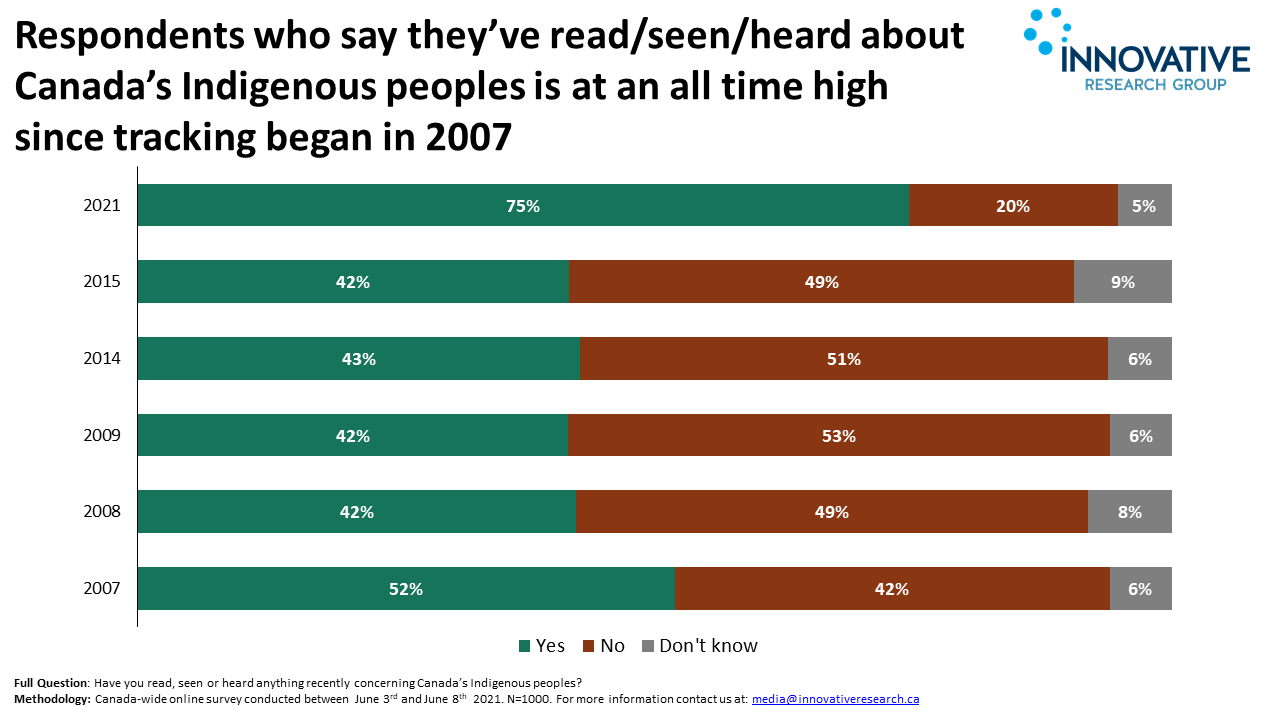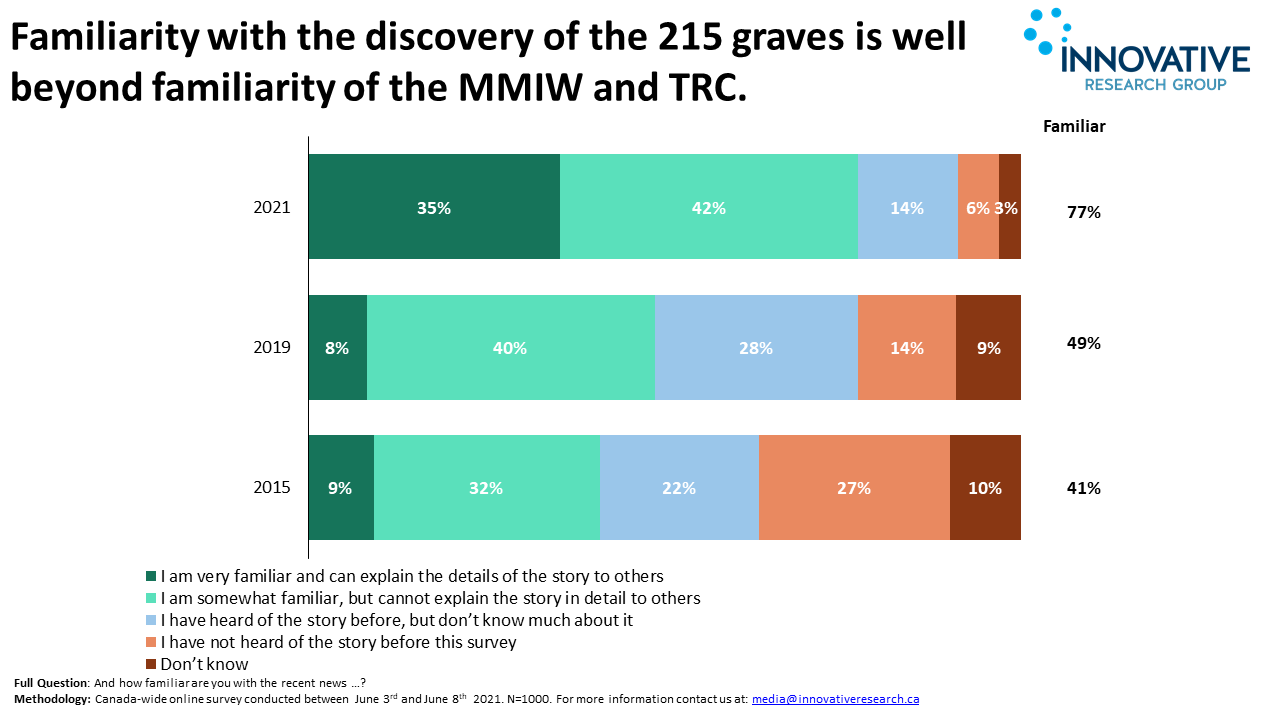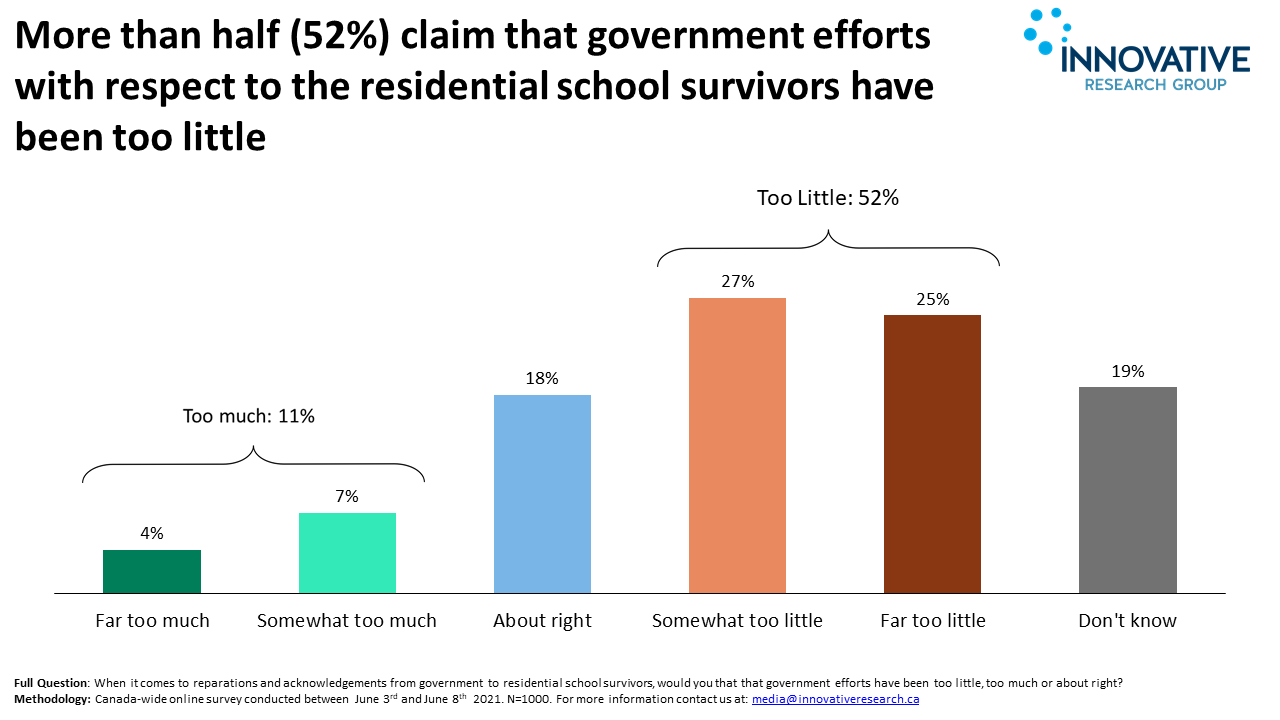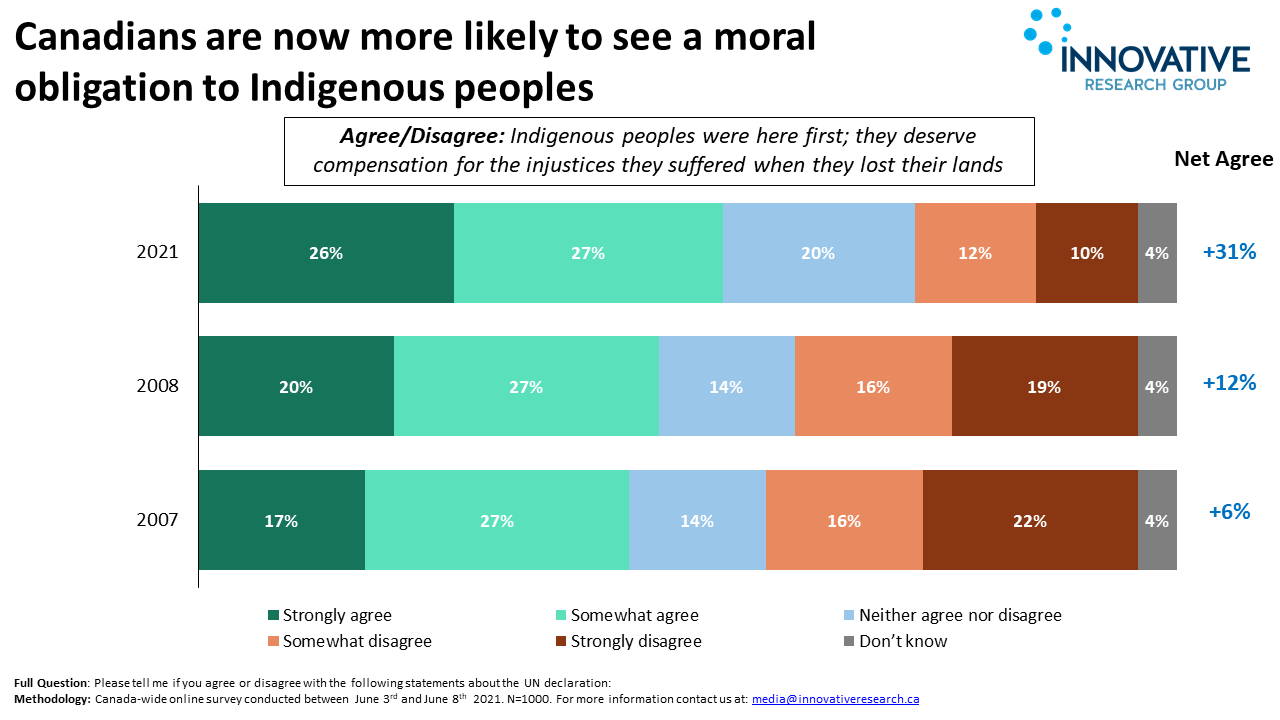
An online INNOVATIVE survey of 1,034 Canadians released today suggests that the discovery of 215 graves at the site of the former Kamloops Residential school may have a fundamental impact in more general attitudes and beliefs regarding Indigenous issues and rights.
INNOVATIVE has been tracking Canadian opinions and attitudes regarding Indigenous issues since 2007. Previous INNOVATIVE surveys have tracked reactions to major events related to Indigenous peoples including the Truth and Reconciliation Commission and the National Inquiry Into Missing and Murdered Indigenous Women and Girls.

Canadians have never been more aware of Indigenous issues. The number who have read, seen, or heard something lately about Canada’s Indigenous peoples is now at 75%. In 4 out of the 5 times we tracked in the past, that number was 42 or 43%. Back in 2007 it was at 52%.
There is no question this increased awareness is due to the Kamloops discovery. Three quarters (77%) of Canadians are at least somewhat familiar with the discovery of the bodies. This is very unusual for an Indigenous news event. In 2019, just 48% were at least somewhat familiar of the report from the National Inquiry into Missing and Murdered Indigenous Women and Girls. In 2015, just 41% were at least somewhat familiar with the Truth and Conciliation Commission.

Canadians are outraged by this news. Eighty-one percent (81%) say they feel at least somewhat angry about the treatment of Indigenous peoples at residential schools. To put that in context, just 37% felt angry when they learned Justin Trudeau wore blackface multiple times in the past.
This fury is impacting assessments and expectations of government.
- Federal government net approval on Indigenous issues is declining driven by a 7-point increase in disapproval.
- 68% say the discovery reminds us that residential schools created issues that still require government responses today.
- 52% say government has done too little for residential school survivors
- 70% say the government needs to provide funding to search all other residential school sites for undiscovered graves.

The newly discovered graves in Kamloops also appear to be impacting underlying attitudes.
Feelings toward Indigenous groups have been improving steadily over the past 15 years. When we started tracking in 2007, 2008, and 2009, there were significantly more negative views than positive. In 2014, 2015 and 2017, Canadians were divided. In 2019 positive views were significantly greater than negative (+13). Views are even more positive this year (+22). This is a critical shift in underlying attitudes and puts Indigenous organisations in a more powerful position.
We are not just seeing a change in how Canadians view indigenous peoples, but a change in how Indigenous people view themselves. Just over 1-in-10 respondents indicated they have some Indigenous ancestry. Among those people, a majority of 62% say that ancestry is an important part of who I am as a person. That is the highest we have seen since we started tracking in 2007.
Canadians are now more likely to see moral obligation to Indigenous people.
- 68% agree Canadians have a duty to help resolve the massive inequalities that Indigenous peoples face in Canada.
- 55% agree since governments have failed so badly that it makes sense for Indigenous peoples to take control of their own affairs.
- 53% agree that since Indigenous peoples were here first, they deserve compensation for the injustices they suffered when they lost their lands.

Canadians are more supportive of Indigenous rights.
- While Canadians remain conflicted over whether all Canadians should have the same rights or Indigenous peoples should have additional rights, agreement that Indigenous peoples should have the rights they need to protect their culture and heritage has jumped 16 points with a majority (51%) now in agreement.
- Canadians are less supportive of government and more supportive of Indigenous peoples having the final say on pipelines.
- The percentage who think the UN declaration of the Rights of Indigenous Peoples is a good idea is up 9-points to 63%.
Canadians remain concerned about the economic impacts of Indigenous rights with pluralities agreeing they are concerned about a potential Indigenous veto slowing down development and worried Indigenous approval rights will threaten jobs in my community.
For more details, download the full deck here.




































